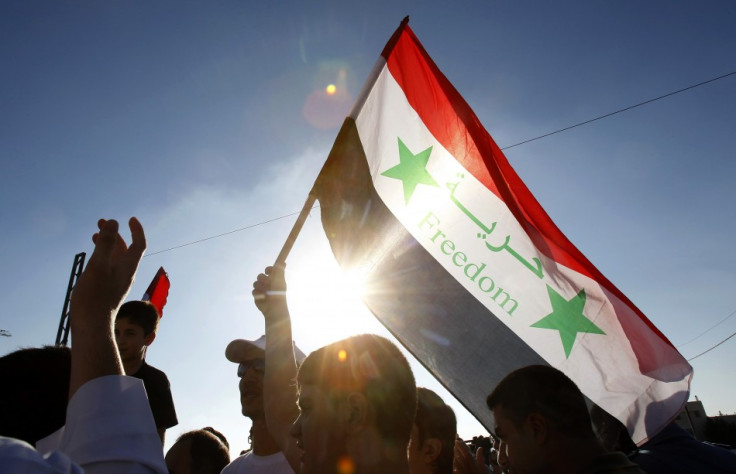Syria: Christians Fears of Persecution Neglect Uprising is Call for More Egalitarian Society Not Sharia Law

Reports that Syrian Christians are throwing their support behind President Bashar al-Assad, despite months of a brutal crackdown on civilians protesters that call for an end to the regime, have emerged since the beginning of the uprising.
Known to be a keen defender of Arab nationalism, the Assad regime has nonetheless remained anchored in secularism, providing the Christian minority, of approximately 1.5 million with relative freedom and most importantly with freedom to worship.
Many say the prospect of a new regime scares the Christian community who fear a pro-Muslim government, less lenient on Christina rights could take over Assad, leaving the Christian population to fend for themselves. Their 'loyalty' to Assad they say is more driven by fear than fervour.
The fear of persecution and attacks seem to be the predominant reason behind the community's reluctance to back regime change as many, in other Arab states struggle to obtain freedom to worship without being harshly segregated and repeatedly abused or seen as potential enemies.
Syria however is still ranked 38 out of 50 countries while in 2006 it was ranked at number 47, showing the regime has become more repressive towards the Christian community in the recent years and despite many insisting the repression is still moderate in comparison with other states, it demonstrate the extent of the regime's repressive methods.
In 2010, the government closed at least six buildings where Christians had gathered and reports of Christians being repeatedly arrested and interrogated because of their Christian activities, have also been on the increase.
The threat of introduction of the Sharia (Islamic) law, seems to have deterred the community's backing of the regime but representative of the community insist they do not condone the violence being perpetrated by the government against civilians and largely peaceful protesters and add the Christian community does endorse reforms.
For many Assad represent predictability in a region known to be politically volatile and throughout its forty years in power the family has proven to be a decent protector. Many in the Syrian Christina community also come from countries such as Iraq and Lebanon where anti-Christian persecution is current.
Others also point to the situation in Egypt where attacks on Christian churches have recently been reported, saying Mubarak ousting has led to a renewal of violence against certain section of the population.
Another main point of concern is the prospect of civil war should Assad also be forced out, which could leave the country in tatters and further create further divides between the different sectarians and religious groups.
Was encouraging and fostering divide not what the Assad family has done for years, by giving priority to the small Muslim Alawites minority and providing some factions of the population, including the Christian community with more protection than others?
The uprising against Assad is not based on religious principle or with the aim of putting a Sharia-based regime in place. Protesters are only asking for a more egalitarian and free society where freedom of expression is not met with torture or shooting. They demand the right to openly criticised the government, to choose who represent them and to be more involved in the country's political life.
Assad, like many dictators before him has based his power-based on a patron-client relationship, providing god jobs and protection to some of the most vulnerable minorities in exchange of their loyalty, creating a fractured country where aspiration for change clashes with fears of persecution.
Communities supported by the Assad regime find themselves in a difficult position as they are at risk of reprisal from both the Assad and the anti-Assad camps, but in view of the extent of the brutality of the crackdown and a history of repression and bloodshed by the Assad family, embracing change would have still have provided then the possibility of trying to build a more inclusive Syria.
Assad might not leave power any time soon, but with protests still on-going and its regional credibility slowly crumbling, the Assad family should prepare for its last decade in power, and once regime change comes, it will be difficult for those who back the regime to suddenly face the after Assad Syria.
On the other hand, some within the Christian community have joined in the protests, and Christian intellectuals like Michel Kilo and Fayez Sara have joined the opposition creating internal divide that will need to be assessed once this phase of the conflict is over.
The next phase however announces even more bloody for all camps as with the United Nations estimating that more than 2,600 people have died since the uprising erupted in mid-March, and a continual crackdown, protesters are now so desperate and so fearful of the armed forces activist have warned they may now resort to arming themselves.
© Copyright IBTimes 2025. All rights reserved.





















